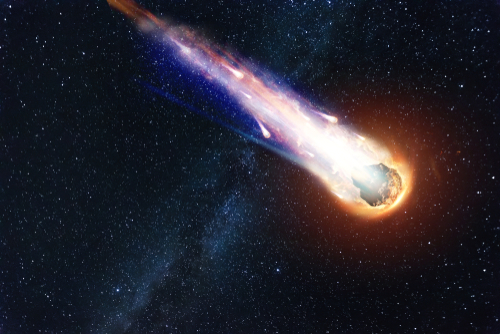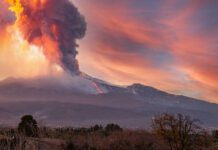
In a development that seems to have been plucked straight from a science fiction novel, astronomers have reported the approach of a gargantuan comet, ominously dubbed the “Devil Comet.”
This celestial body is three times the size of Mount Everest, the highest mountain on Earth. The comet, officially named 12P/Pons-Brooks, exploded on October 5th and is now hurtling towards our planet.
The Devil Comet is not just any ordinary comet. It’s a cryovolcanic or cold volcano comet, which means it constantly releases icy debris throughout the solar system. Its diameter measures a staggering 18.6 miles, making it roughly the size of a small city.
To put this into perspective, Mount Everest stands at a height of approximately 5.5 miles.
A volcanic comet the size of a mid-sized US city has violently exploded for the second time in four months as it continues racing toward the earth. And following the massive eruption, the cloud of ice and gas sprouted what looked like a pair of gigantic devil horns.… pic.twitter.com/1NtoKRalvp
— Hadessah1776!🍊🍊🍊🍊🍊 (@HKracken) October 19, 2023
This isn’t the first time the Devil Comet has made its presence known. In fact, this marks the second time in the last four months that this interstellar ice cube has erupted. The previous celestial event occurred in July, adding to the comet’s already impressive resume.
Despite its intimidating size and moniker, there’s no need for panic. Astronomers assure us that the comet is not expected to collide with Earth. Instead, it will pass close enough to be visible from certain parts of our planet.
The spectacle is expected to occur between April and June of next year.
The closest the comet is predicted to come to Earth is a distance of 144 million miles. While this may seem like a hair’s breadth in astronomical terms, it’s far enough to ensure our safety while providing a potentially breathtaking celestial display.
The “Devil” comet will be visible April 2024. How exciting. pic.twitter.com/N2PHHvBMns
— Black Bair (@theblackbair) October 19, 2023
The Devil Comet’s unique shape has also drawn comparisons to the Millennium Falcon spaceship from the popular “Star Wars” franchise. Its horned appearance is what earned it its devilish nickname, adding a touch of intrigue to this already fascinating celestial event.
While the approach of the Devil Comet may seem like a harbinger of doom, it’s actually an opportunity for us to witness a rare astronomical event. So, come next year, remember to look up at the sky.
You might just catch a glimpse of this colossal visitor from the depths of space.












